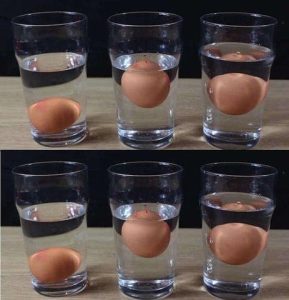5 ways to tell if an egg is fresh or rotten
How to Tell if an Egg is Fresh or Rotten
Egg freshness can be tricky to determine, but there are simple ways to check. “There are plenty of things you can do to prevent your eggs from going bad in the first place.” Here are five tips to help you.

1. Check Expiration Dates
Supermarket eggs have a recommended use-by date on their packaging. In France, distributors must stop selling eggs seven days before this date. Fresh eggs can be stored in the fridge for up to 58 days if their shells are intact. Proper storage prevents mold and maintains freshness, taste, and nutritional quality.

2. Smell the Egg
Expired eggs have an unpleasant odor. Registered dietitian Taylor Jones suggests, “If the smell puts you off, throw the egg away and wash the container with hot water.” Always smell an egg after cracking it into a bowl. If the odor is off, discard the egg immediately.

3. Inspect the Shell
Examine the shell for powdery, viscous, or cracked spots. Any suspicious appearance can indicate mold or bacteria. Dr. Julia Roux, a gastroenterologist, warns that bacteria like salmonella can cause food poisoning with symptoms such as fever, diarrhea, and vomiting.

4. Use the Water Test
Immerse the egg in water. If it sinks, it’s fresh; if it stands upright, it should be used soon; if it floats, it’s expired. This method works because older eggs lose moisture and develop larger air pockets, making them buoyant.
By following these methods, you can ensure your eggs are safe to consume and reduce food waste.





